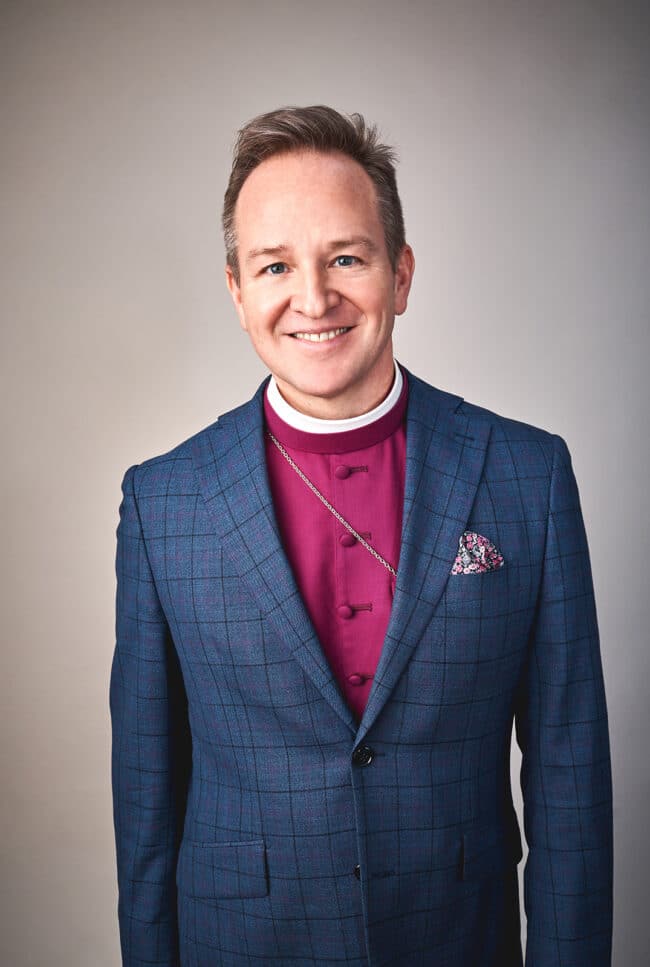The Rt. Rev. Thomas J. Brown
Tenth Bishop of Maine

Contact
The Right Reverend Thomas J. Brown is the tenth bishop of Maine.
Brown graduated with a Bachelor of Science from Western Michigan University & Kalamazoo College in 1988. After receiving his Master of Divinity from the Church Divinity School of the Pacific, Berkeley, California, in 1997, Bishop Brown was ordained a priest in Kalamazoo on January 18, 1998.
For three years Brown served as alumni and church relations director and adjunct faculty at the seminary, while also serving as curate at the Church of St. John the Evangelist in San Francisco. He was called to be rector of St. Michael’s Church in Brattleboro, Vermont in 2000. Brattleboro is where he and his husband, Fr. Thomas Mousin, met. The blessing of their civil union, in 2003, was an occasion for the Diocese of Vermont to help lead the Episcopal Church to full inclusion of LGBTQ+ people.
In 2009, Brown became rector of the Parish of the Epiphany in Winchester, Massachusetts. He was a deputy to several General Conventions, a trustee of the Church Pension Fund, and the co-chair of the Diocese of Massachusetts’s $20M capital campaign.
He was elected Bishop of Maine at a special diocesan convention on February 9, 2019, succeeding the Right Reverend Stephen T. Lane, and was consecrated June 22, 2019. Bishop Brown and the Rev. Thomas Mousin live in Portland, where Mousin serves as rector of St. Peter’s Church in Portland and as a chaplain at Hospice of Southern Maine. When they are not in the beautiful state of Maine, they’re on Round Island in the Thousands Islands region of New York, a place they’ve spent time for two decades.
< Back to all staff